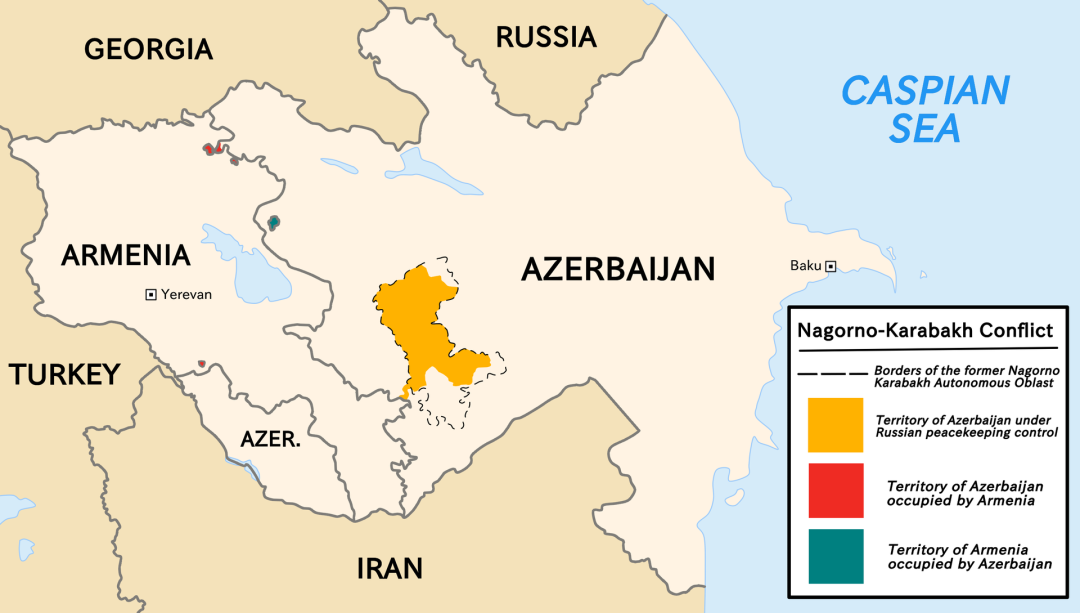
Nagorno-Karabakh: Italian companies to operate in Azerbaijani-controlled territories; UK and German ambassadors on prospects of cooperation

On 3 February, Azerbaijan’s President Ilham Aliyev, during a video conference, received a delegation led by the head of the Italian company Maire Tecnimont Group Fabrizio Di Amato.
During the conference, Di Amato announced his companies’ readiness to expand its activities. Aliyev noted with satisfaction that the Italian company was participating in projects in Azerbaijan worth over 1.6 billion euros. He expressed his hope that Italian companies would be very active in projects related to the restoration of the Azerbaijani controlled territories of Karabakh, adding that several Italian companies have already been invited for restoration and construction work.
Aliyev also outlined that green energy would be the key concept implemented in Nagorno-Karabakh. “I already announced that all liberated territories should be a great energy zone. At the same time, we will apply modern technologies there like smart city technologies, even smart village technologies. So, that will be a good example also for other parts of Azerbaijan, where we also need renovation, modernisation and technological progress,” he stressed.
The ambassador of the United Kingdom to Azerbaijan James Sharp also addressed the concept of green energy in Karabakh. “The development of these territories is an amazing opportunity for Azerbaijan, one that rarely happens for any country – starting with a blank sheet of paper. Again, we very much support the president’s vision of a green recovery – green cities, renewable energy - and I’m sure British Petroleum (BP) and UK firms would want to be involved,” he stated. “In terms of specific sectors, agriculture, tourism, mining seem to be the most promising ones, and there’s already a UK-listed company – Anglo Asian Mining – which has some long-standing concessions in the territories and is looking forward to accessing them. Another recent news that a Scottish company is already involved in demining activities in Fizuli,” he added.
“But it’s worth being aware that this is a risky environment for foreign companies – not just the landmines, but also uncertainties over things like population changes – so it will be important for the government to recognise that and provide incentives for investment. Also, it’s not just a question of physical development. It’s important to consider the human element – the role of women, access for disabled people, education, and the role that NGOs and civil society can play,” Sharp further underscored. He also said that the partnership between BP and Azerbaijan would stand for 25 more years, shifting the focus to renewable energy.
While speaking on the resolution of the second Karabakh war, Sharp stated that the UK would have preferred the Minsk Group co-chairs to have been involved in negotiations on the ceasefire, and that a multilateral peacekeeping operation be established, which could also have been guided by the OSCE. He added that the situation had become very different in the Caucasus and that the UK supports Aliyev’s proposal on cooperation of the Caucasus countries on economic issues.
The German ambassador to Azerbaijan Wolfgang Manig was a guest of the government critical Turan news agency, where he exchanged views with the agency’s journalists on the possibilities of establishing information trust in the South Caucasus region and, in particular, between Armenia and Azerbaijan. “The German government is interested in enhancing the role of the media in the settlement of the Karabakh conflict, establishing trust between the two states and peoples [and] ensuring long-term peace for the benefit of the two countries,” Manig stated. “Germany has always used various programs to improve the professional and ethical level of journalists from different countries, including Armenia and Azerbaijan, and is ready to take the necessary steps to become a platform for joint meetings and trainings of Azerbaijani and Armenian journalists,” he added.
See Also


Armenia Records 5.9% GDP Growth in 2024, Missing 7% Goal

Yerevan Balances Strategic Ties with Both US and Russia, Says Foreign Minister

FM Mirzoyan: Peace Deal with Azerbaijan Is Within Reach

Pashinyan and Erdogan Hold Call, Reaffirm Commitment to Ongoing Dialogue

